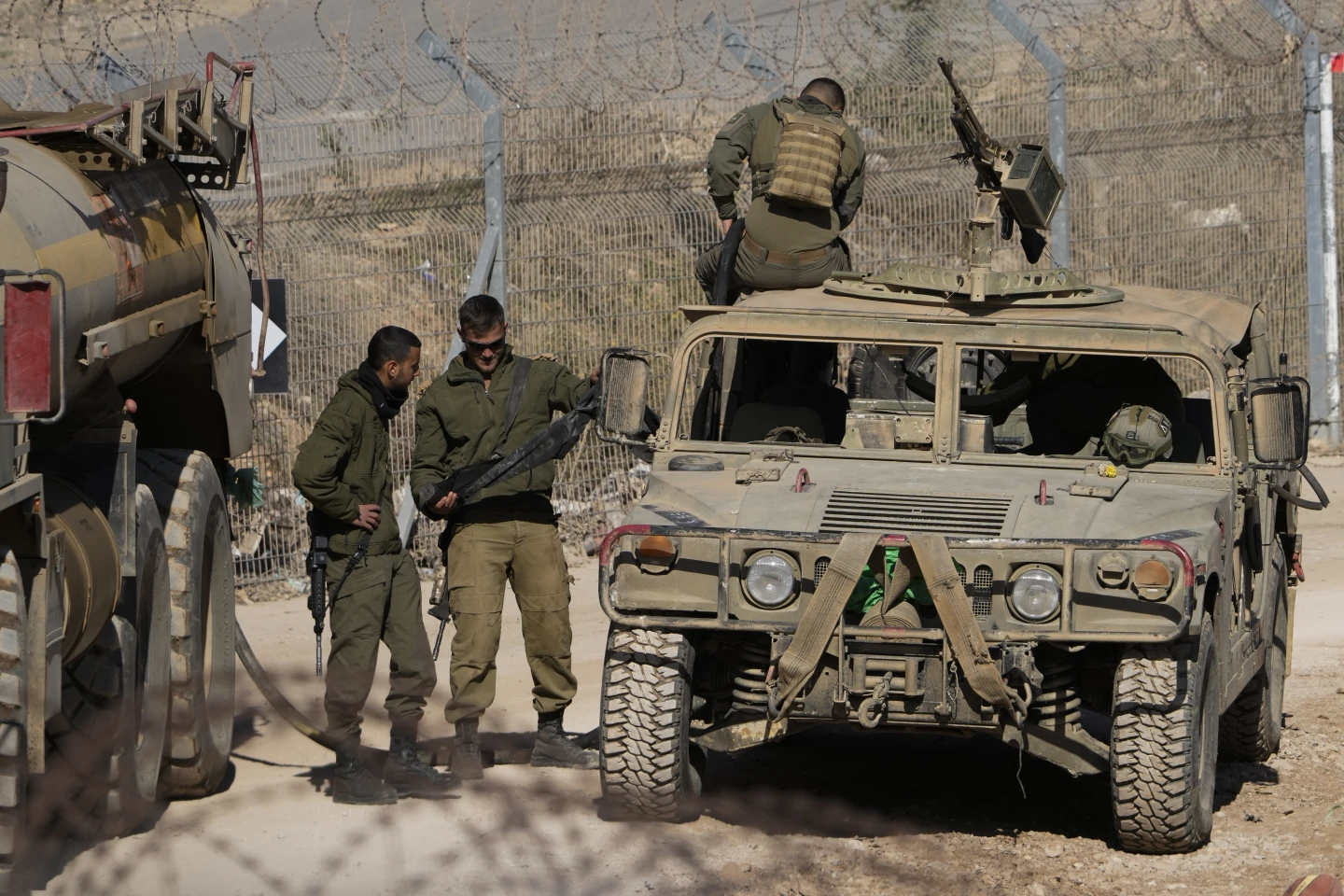Israeli Prime Minister Benjamin Netanyahu has stated that Israeli forces will remain in a buffer zone on the Syrian border until a new security framework is established. Speaking from Mount Hermon, situated about 10 kilometers inside Syrian territory, Netanyahu highlighted the strategic importance of the area for Israel’s defense. His visit to the site marked the first time an Israeli leader had gone this deep into Syria. Recalling his earlier service as a soldier at Mount Hermon, Netanyahu described its growing importance in light of shifting regional dynamics.
The buffer zone, spanning 400 square kilometers near the Israeli-controlled Golan Heights, was taken by Israeli forces after Syrian President Bashar Assad was overthrown by rebel factions. This move has drawn widespread criticism, with opponents accusing Israel of breaking the 1974 ceasefire agreement and taking advantage of the current instability in Syria to expand its territorial control. Netanyahu, accompanied by Defense Minister Israel Katz, defended the military presence as essential to Israel’s security. Katz has also instructed the military to establish fortifications in the area, calling Mount Hermon an essential outpost for monitoring threats.
The United Nations has denounced Israel’s actions, stating that they violated the terms of the agreement establishing the buffer zone after the 1973 war. A U.N. spokesperson stressed that the ceasefire terms must be upheld and warned that occupation, regardless of duration, constitutes a breach. Hayat Tahrir al-Sham, the rebel group that played a key role in Assad’s removal, has not yet commented on Israel’s actions. The Golan Heights, annexed by Israel in 1981, remains internationally disputed, with the United States as the sole nation recognizing Israeli sovereignty over the region.

Netanyahu Defends Israeli Buffer Zone in Syria Amid International Criticism and Regional Shifts
Following Assad’s removal, Syria is contending with profound changes as insurgent leaders attempt to stabilize the country. Rebel factions, including Hayat Tahrir al-Sham, have pledged to facilitate humanitarian assistance for millions of Syrians in urgent need of aid. The United Nations and countries like Germany have initiated dialogue with these groups to encourage the delivery of aid and advocate for minority and women’s rights. Germany has expressed caution, citing the rebels’ history of links to al-Qaida, and has indicated it will assess their actions before making further commitments. The United States has also maintained communication with the rebels, reflecting the challenges of aligning international efforts with Syria’s shifting realities.
In northern Syria, U.S.-backed Kurdish forces have proposed designating the town of Kobani as a demilitarized zone to ease tensions with Turkey. Turkey views the Syrian Kurdish militia as a terrorist organization and a threat to its national security. Meanwhile, grim discoveries from Assad’s regime continue to emerge, with a mass grave uncovered in Izraa. Forensic experts and local officials found evidence of brutal executions, leaving families devastated as they come to terms with the fate of their missing relatives.
Diplomatic re-engagement with Syria is gradually unfolding. Qatar has reopened its embassy in Damascus after a 13-year closure, marking a significant step in regional diplomacy since the outbreak of Syria’s civil war. France and Turkey have also shown interest in restoring relations, with France making a symbolic gesture by raising its flag over its embassy. These developments reflect the ongoing international response to Syria’s transformation and the uncertain road ahead for the nation and its people.
